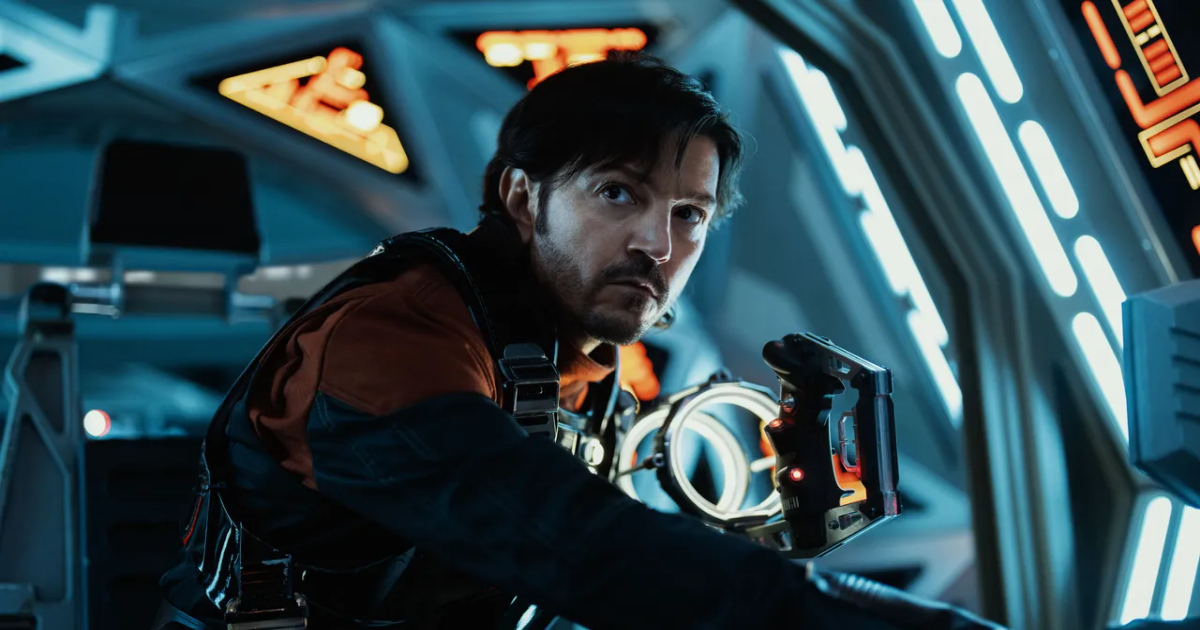In the years since the Walt Disney Company acquired Marvel and Star Wars, its strategy has been to flood the market with as much Marvel and Star Wars stuff as possible until audiences are begging for more. That onslaught has, shockingly, proven less than effective; interest in Marvel and Star Wars projects has waned, both in theaters and at home. A saturation point was reached, and viewers began to move on to other things.
In Disney’s defense, they at least had the prudence to stop making Star Wars movies for a while after 2019’s disastrously incoherent Rise of Skywalker. But the studio has kept plugging away with TV shows, releasing six new live-action Star Wars series since 2021. It’s entirely too much, this desperate effort to capitalize on every square inch of unclaimed narrative property adjacent to the original trilogy of films. Little can breathe when packed in so close to everything else.
Yet one of those series, Andor, somehow manages to be good television. And not just good for a latter day Star Wars show. Andor, which returns for a second season on Disney+ April 22, stands toe-to-toe with any of the great series currently airing It’s a sophisticated epic, a feat of both expansive and granular imagination. The series is rushing toward a foregone conclusion—we’ve already seen its lead character, smuggler turned rebel captain Cassian Andor (Diego Luna), die in the 2016 film Rogue One—but finds endless suspense in the journey toward that fixed point. Creator Tony Gilroy goes for highbrow political intrigue in a way that is complementary to the space-opera fun of Star Wars, rather than disdainful of it. He gives a long cherished galaxy a respectful weight; Andor takes this all very seriously.
Maybe there is some haughty avoidance in Andor; the series never mentions Darth Vader, nor Yoda nor Jabba the Hutt nor anyone named Skywalker. It keeps the wicked Emperor Palpatine safely off screen, though his presence nonetheless looms over the show. Many fantastical elements of Star Wars have to be eschewed for this grave and grownup take on the material to work, a putting away of childish things that may rankle some viewers. Plenty of Star Wars fans do want goofy aliens and mystical heros’ journeys toward cosmic greatness—but Andor denies them that in favor of grim ruminations on fascism and resistance.
Andor’s second season begins a few years before the destruction of the Death Star, which ends the original 1977 film. Andor and his cohort are as yet unaware that such a killing machine even exists. Instead, they are busy furtively amassing the allies and materials that might give them a fighting chance against a force as widespread and well-armed as the Empire.
Echoing the first season, Andor breaks the new run of episodes into several mini arcs, while one grander narrative binds them together. We watch as Andor does his increasingly risky and high-stakes guerilla missions, while on the gleaming capital planet of Coruscant, Senator Mon Mothma (Genevieve O’Reilly) keeps up outward appearances as a mask for her clandestine efforts to funnel funds to the rebellion. Existing between them is a host of spies and opportunists all playing a role in the fomenting of war—many of them orbiting around shifty operator Luthen Rael (Stellan Skarsgård), who works in the light and in the shadows.
Andor gives ample attention to the other side, Empire officials who are ruthlessly devoted to their cause. Cunning secret police officer Dedra Meero (Denise Gough) is handed a high-security assignment involving a resource-rich planet, Ghorman, whose people are French-coded artisans and aesthetes and, true to our own WWII history, dogged underground resistance fighters. Syril Karn (Kyle Soller) has been kicked down the career ladder for his failures last season, but his ambition has found a new foothold.
Andor season one ended with a rousing call to action against despotism, but that spirit has ebbed some at the start of season two. Characters are mired in the frustrating and dangerous process of praxis, their opponents gaining ever more power and ever more willingness to flamboyantly wield it. Gilroy and his writers carefully, patiently spend season two building their way back to righteous fire. What begins as a murmur of dread gradually crescendos into a poignant and stirring vision of revolution’s cost, its noble sacrifices and bitter losses. It’s high drama that stretches across multiple years, and yet is done with a delicate, intimate touch. We peek into so many inner lives throughout the season, even those of seemingly small and ultimately insignificant characters.
